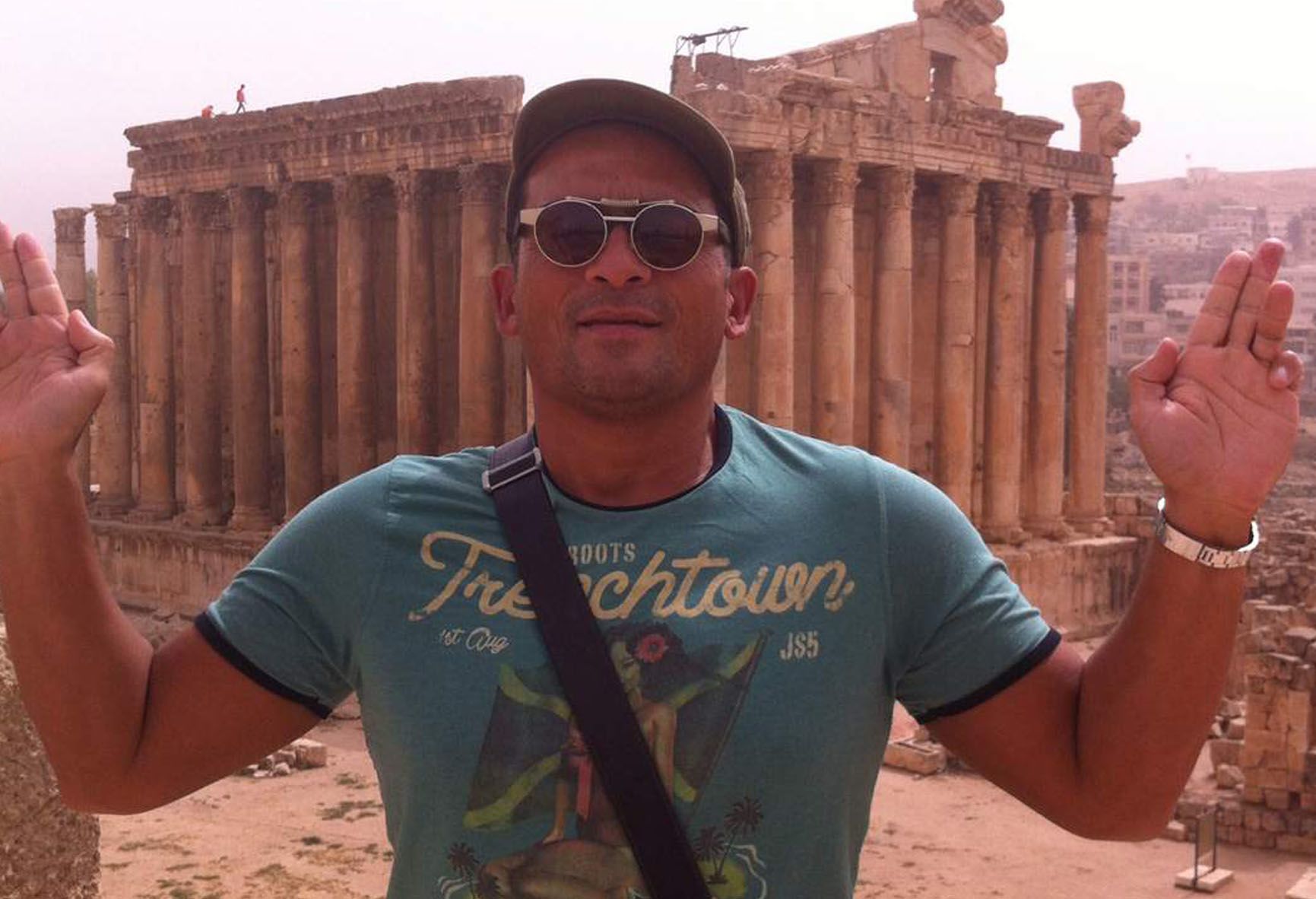The suspected gangster at the heart of world boxing
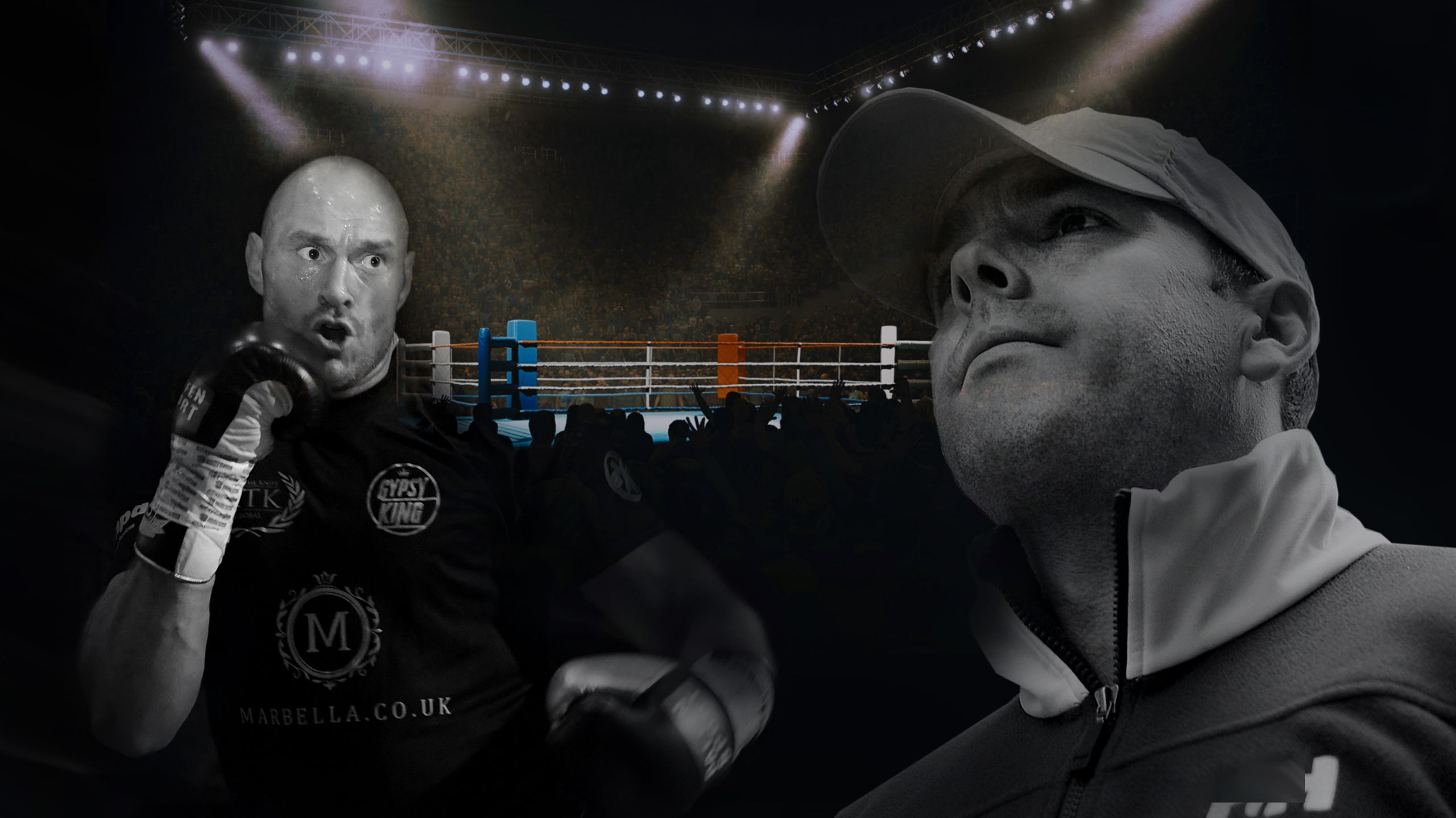
Daniel Kinahan has been named in the Irish courts as heading one of Europe’s most brutal drug gangs.
He’s also been a personal adviser to world heavyweight champion Tyson Fury.
The BBC investigates how a company Kinahan helped set up has become one of the most powerful in the sport.
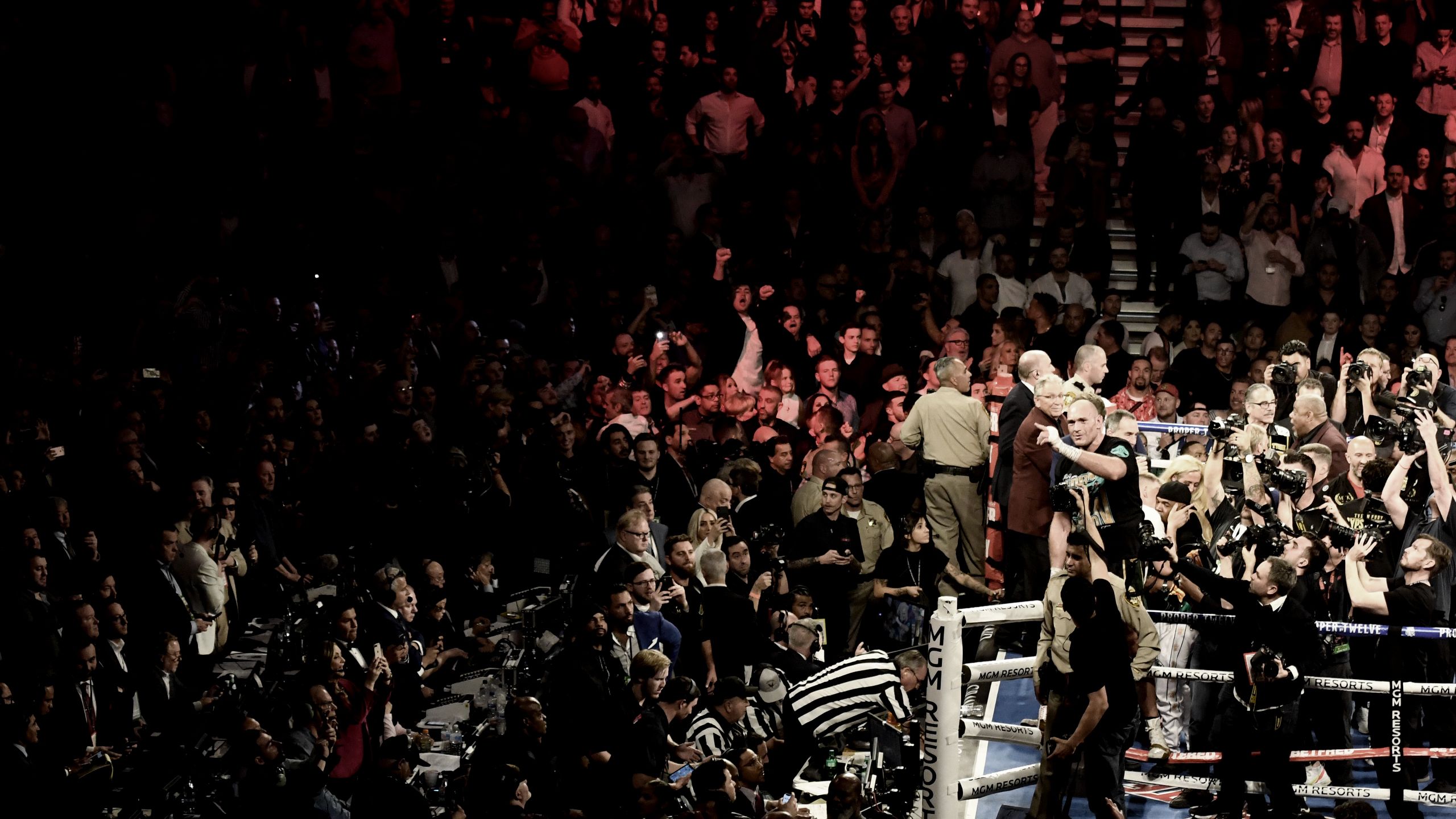
The revelation
It was the Gypsy King himself who revealed it all in a near joyous social media post last June.
“I’m just after getting off the phone with Daniel Kinahan. He’s just informed me that the biggest fight in British boxing history has just been agreed. Get in there my boy!”
The big fight was on. Terms had been agreed for the contest boxing fans wanted more than any other - Tyson Fury versus Anthony Joshua.
Fury’s post was exultant. “Big thank you Dan for getting this deal over the line.”
For British fight fans, it couldn’t have been better news. The two best heavyweight boxers in the world would fight it out to be the undisputed world champion. Boxing loves hype but it is almost impossible to overstate the significance of this contest.
When it happens, it will be the biggest and most moneyed fight in British boxing history. Hundreds of millions of pounds will be in the mix for the fighters, promoters and broadcasters. And at the end of it, one of two British boxers will stand on top of the world, holding the belts once hoisted high by the likes of Muhammad Ali and George Foreman.
But Tyson Fury hadn’t just given boxing fans the news they wanted to hear. He had also given up one of boxing’s darkest secrets. The man he thanked three times in his 55-second video, is alleged to be one of Europe’s top mobsters, whose cartel deals in drugs, guns and murder.
That’s Tyson Fury’s adviser Daniel Kinahan.
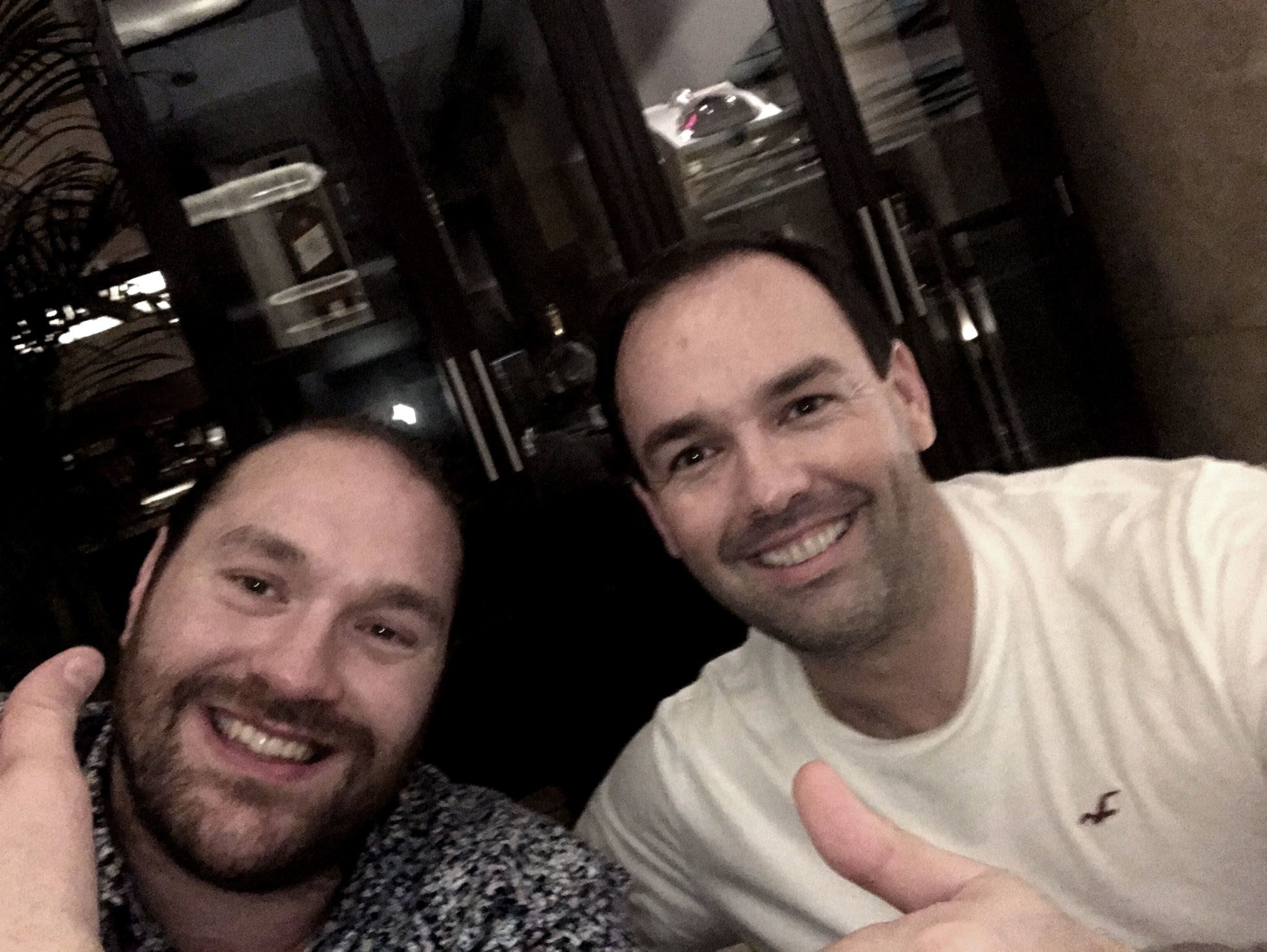
Three months later and I was talking to a former boxer outside the gym he runs in a major British city, for a BBC Panorama documentary. Social scientists would describe the neighbourhood as suffering from long-term economic decline. This man has worn a few hats in his time - most significantly as a part-time guardian to a number of young folk.
I asked him what he thought of Tyson Fury’s news when he first heard it.
“Delighted, delighted. Great news,” he says.
But not because of the big fight.
“I thought, ‘Finally they will have to deal with Daniel Kinahan,’” he says. “They will have to get rid of him from boxing. The police will deal with him. Everyone knows now.”
But this day, he was totally disillusioned. Months had passed and nothing had changed.
“Look up the street there,” he demands. “There’s teenage girls turning to prostitution to pay for their drug habit. Kids all around on drugs.”
Although Daniel Kinahan has never been convicted, this man is all too aware of the Irishman’s reputation and that he has been named in court as the head of a drug cartel.
The man I was meeting wanted to know why he should be trying to convince kids that boxing offered them a safe haven. How could he argue that boxing protected them from drugs, from gangs, from violence, when a man like Daniel Kinahan was at the top of the sport?
My colleague Stephen Dempster and I had spent weeks trying to find people in boxing who would speak to us about Kinahan. This was at the start of a very unusual road trip that had begun with a conversation with a long-retired boxing fanatic in Belfast.
He gave us one name. And a phone number. We followed his lead and got another name. And so it went. It was as if there was a secret association at the heart of professional boxing. All united on one point, Daniel Kinahan was a disaster for the fight game. “But please,” they all said, “don’t mention my name.”
These people were big men mostly. All of them had been around a few tough nuts in their time. And all of them were afraid of Daniel Kinahan, Tyson Fury’s main man.
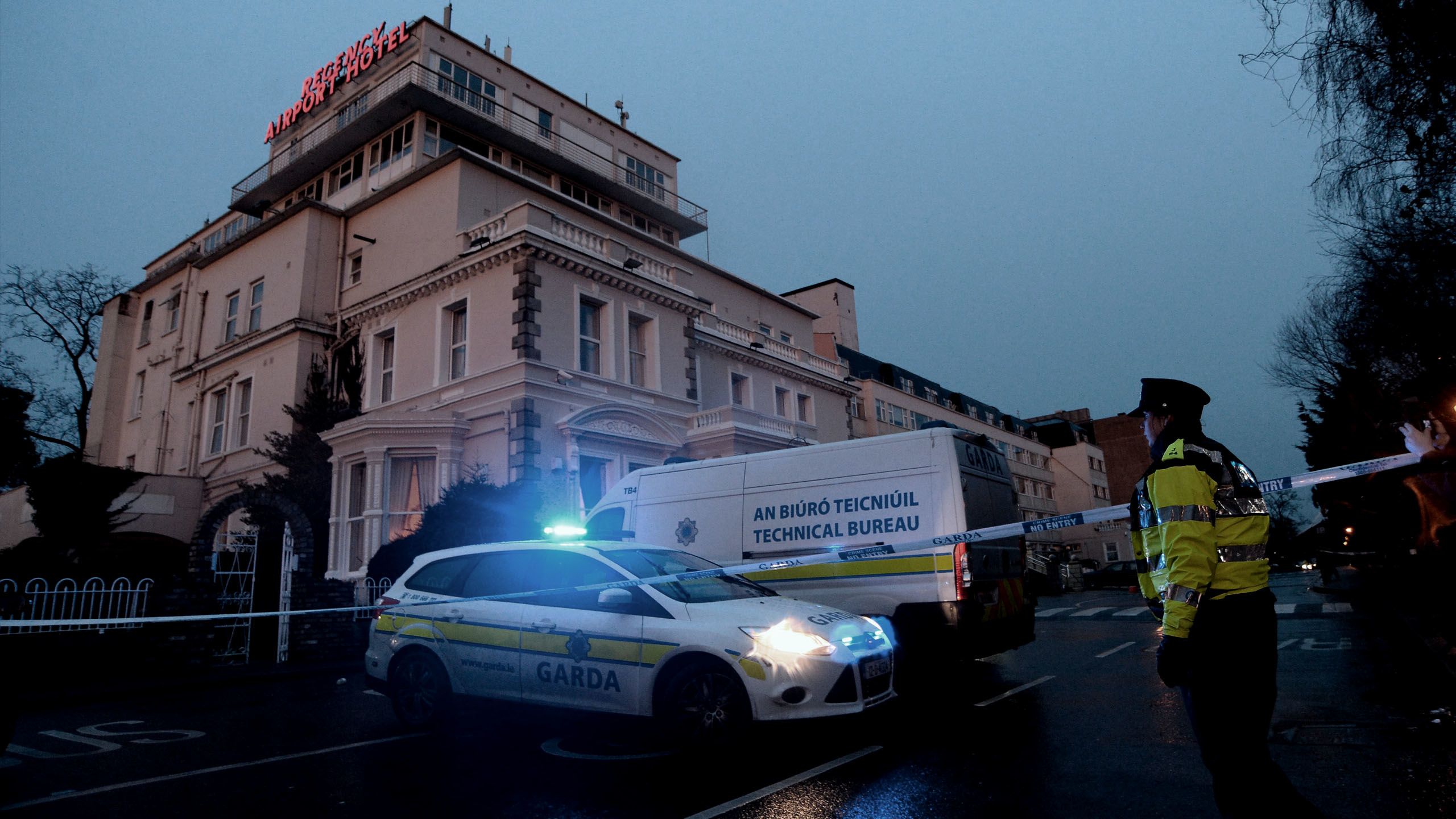
The Regency Hotel shooting
It was a little after two o’clock on Friday 5 February, 2016. Newspaper photographer Ernie Leslie was scanning the outside of the Regency Hotel in north Dublin. He was looking for signs of Daniel Kinahan, a man he knew as the alleged boss of a powerful drugs cartel.
Leslie and Alan Sherry, a reporter colleague from Ireland’s Sunday World newspaper, thought there was a fair chance Kinahan would be about. His boxing management company, MGM, was hosting a big tournament - the Clash of the Clans - on Saturday.
It was a joint promotion between Kinahan’s MGM and Frank Warren, one of the biggest names in British boxing.
On this afternoon, the boxers were all taking part in a weigh-in at the hotel. Fans and supporters were in attendance.
Leslie drove past the front of the hotel but there was no sign of Kinahan.
“Then we spotted this guy we knew to be part of the gang. He was going from a car back to the hotel so we decided to park up and maybe get some shots of him and others at the end of the weigh in.”
But inside the hotel murder and mayhem were imminent.
The last fighter to be weighed-in was Gary Sweeney. Done. The Irishman turned to walk off stage and continue preparations for his first professional fight since he had turned pro under Daniel Kinahan and MGM. A camera phone captured what happened next.
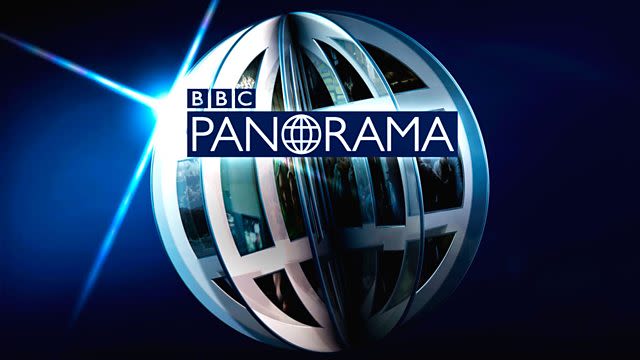
There’s a sudden explosion of noise. Screams of fear and panic, and at least one gunshot. Sweeney, and everyone else, dash to get away and out. On the phone footage the voice of a terrified child can be heard: “Daddy help me!”
That was Sweeney’s eight-year-old nephew, there to cheer on his Uncle Gary. Now they were all running for their lives.
Minutes earlier, a middle-aged man wearing a distinctive flat cap had walked through the hotel linked arm-in-arm with what appeared to be a female companion. They were looking for Daniel Kinahan, with the aim of shooting him dead.
Later, witnesses would say they made an odd couple. For starters the “female” was wearing a wig, and seemed to be having trouble walking in high-heeled boots. So when they appeared in the Regency suite, it didn’t take very long before people realised something was very off. That they were now both wielding handguns completed the picture.
Three other gunmen arrived in the lobby of the hotel. They were dressed in the uniform of the Irish police Emergency Response Unit and carried what appeared to be Kalashnikov rifles.
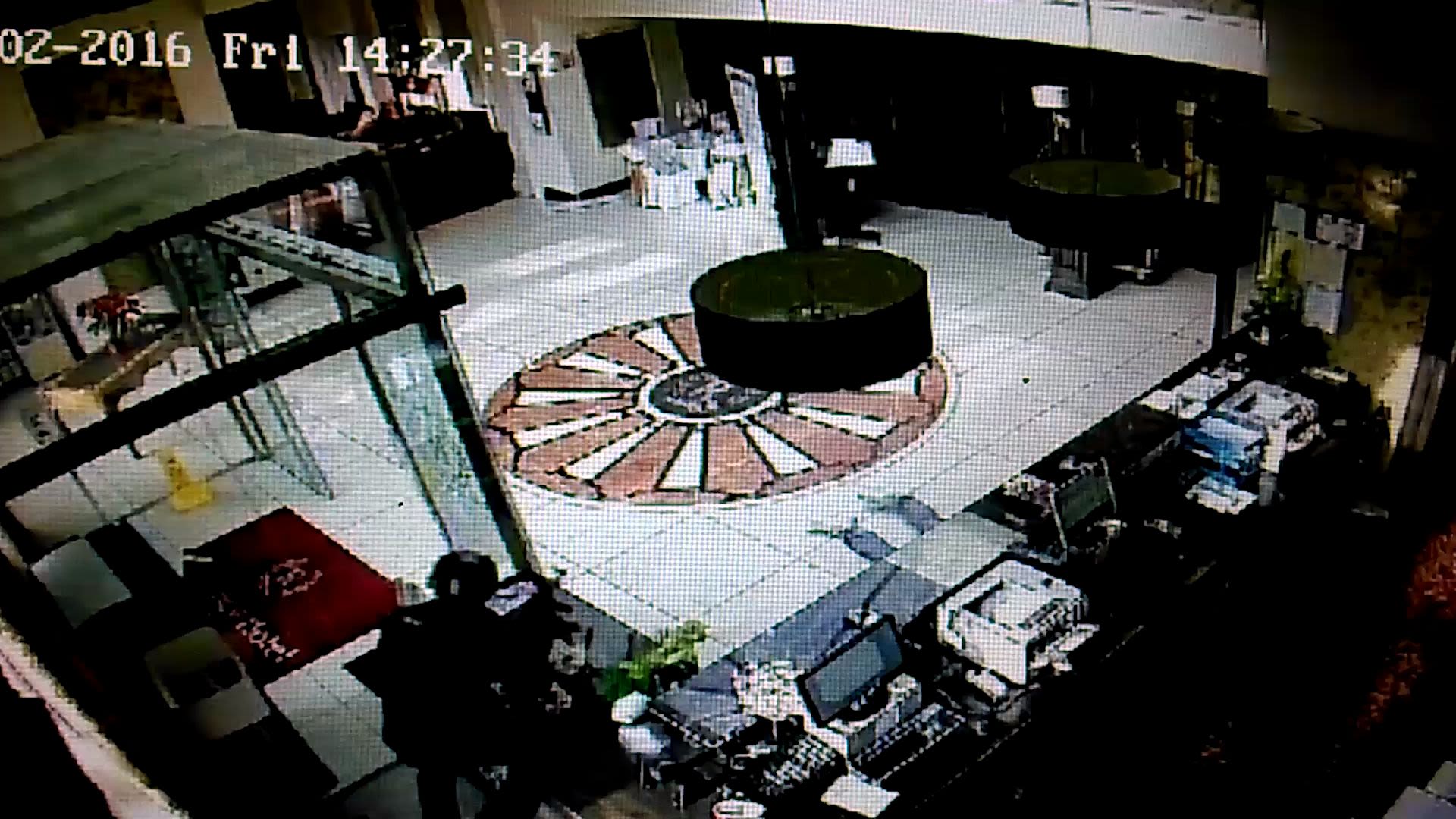
Some of those fleeing from the weigh-in ran straight into them. One of them, David Byrne, regarded as a top criminal associate of Daniel Kinahan’s, was shot dead. Security cameras tracked the progress of all the gunmen as they began roaming the hotel, hunting Kinahan.
Two more associates of Kinahan were shot and injured. But their quarry had escaped.
Photographer Ernie Leslie had heard the first shot. “We were sitting in the car when we heard a loud “crack”. We looked at each other in shock. We couldn’t believe it. Then we saw people running, in a state of panic.”
He spotted a man wearing a flat cap running towards a parked van.
“It was instinct. I thought I could see something in his hand,” says Leslie. “I stopped the car and grabbed the camera. And just started to shoot away.”
Reporter Alan Sherry noticed something else. A long-barrelled gun was pointing out of the van’s window. Then it was pointed directly at them.
Leslie threw the car into reverse. The van drove off in the opposite direction. Without pausing to study the pictures, the photographer sent them to his news desk. What he didn’t know until his editor rang him was that he had captured not one, but two gunmen, leaving the scene.
One photograph was crisp and clear. It showed “flat cap” with his gun, and running just ahead of him the “female”, also with a gun. Both faces were in sharp focus.
“Flat cap” was quickly identified as Kevin Murray from Strabane in Northern Ireland. The 46-year-old, known to have ties with dissident Republicans, remnants of the IRA, was arrested. He didn’t face trial, though, because he was very ill with motor neurone disease, and died 18 months after the shooting.
Irish police were convinced the “female” attacker was Dubliner Patrick Hutch. His brother Gary had once been Daniel Kinahan’s right-hand man. But they had fallen out, and Gary had been shot dead. The Hutch family blamed Kinahan. The Irish police had their motive.
Hutch, then 24, was charged with murder but his trial collapsed two years ago and he remains a free man. Except that he, like other members of his family, now lives with a permanent death threat over him.
The feud
There was a time when heroin couldn’t be found in Dublin. Half a century ago, maybe. But by the time Daniel Kinahan’s father Christopher was dealing heroin in the 1980s, it had taken a grip in the city.
“A particular group of criminals saw the market,” says Michael O’Sullivan, a former assistant commissioner in the Garda Síochána, the Irish police force. “They had contacts in the UK. They sought to make a lot of money, and introduced heroin into Dublin city around 1980.”
Back in the day, Michael O’Sullivan was a drugs squad officer in Dublin. In 1986, he arrested Christopher Kinahan Snr for heroin dealing.
“He was operating a safe flat, a luxury apartment which was the nerve centre for the distribution of heroin through most of Dublin city.”
Christopher Kinahan’s own background was, as they say in Ireland, “respectable”. The family home in north Dublin is reported to have been the childhood home of an Irish prime minister. Past pupils at a school he attended include literary giant James Joyce. As Dublin crime reporter Nicola Tallant tells us, unlike those people who fall into crime for one reason or another, Christopher Kinahan Snr chose a life of crime.
According to O’Sullivan, “he wasn't your average guy who took over a drugs operation. He was a bit smarter, a bit more strategically focused in thinking down the road as to the next move.”
After his arrest, Kinahan was sentenced to six years in jail. Other shorter prison terms would follow in Ireland, Netherlands and Belgium. But all the while Kinahan was building up his list of contacts, growing what became known in law enforcement circles as the Kinahan Organised Crime Group (KOCG).
By 2010, the KOCG had centred its operations on Marbella in southern Spain. Brothers Daniel and Christopher Jnr were now suspected to be helping their father run the family cartel.
Daniel Kinahan was already sufficiently prominent to be name-checked in an American diplomatic cable sent from Sierra Leone to Washington DC.
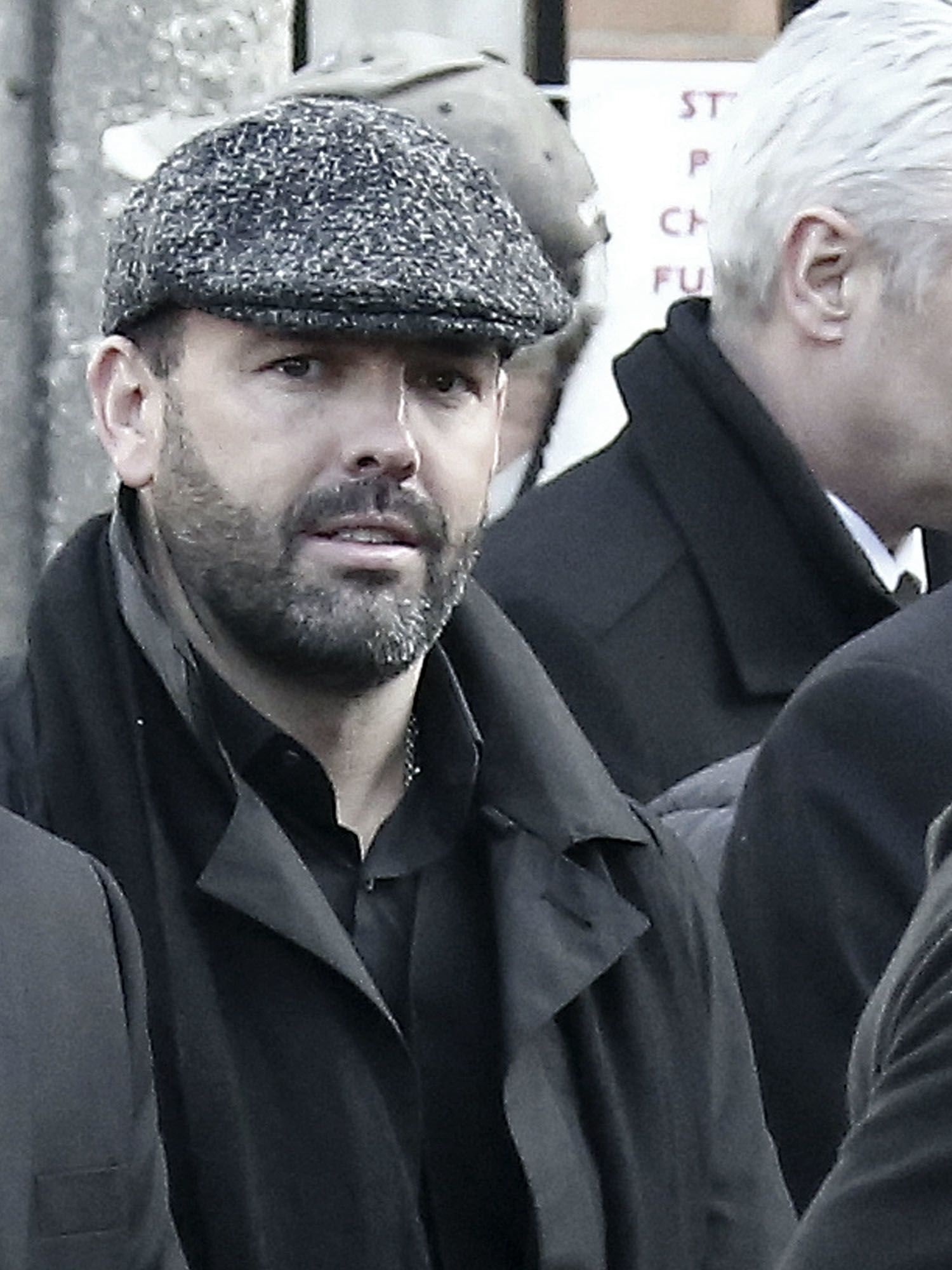
The cable, sent in November 2009, said UK police described him as “an Irish businessman involved in narcotrafficking throughout Europe,” who “may be interested in expanding his network to West Africa.”
In May 2010, Spanish authorities with the assistance of Irish, British and Dutch police, launched what appeared to be a decisive series of raids as part of a far-reaching investigation into the KOCG. The three Kinahans and associates were arrested. Homes and expensive cars were seized, and it looked like it could be the end of the road for the Kinahan firm.
The Irish media feasted on the details of the Spanish investigation. Journalists Stephen Breen and colleague Owen Conlon actually got their hands on a copy of the police files. Co-authors of The Cartel, a study of the KOCG, they are among a group of dedicated Irish journalists who have been rigorously detailing the activities of the Kinahans.
“Their money laundering networks were global and included over 500m euro worth of properties in northern Brazil,” Breen claimed to us. “Money was then being sent to Cyprus, to Lichtenstein, to Switzerland, to Panama, all to hide the cartel’s cash.”
And the authorities had made up their mind about the eldest Kinahan brother, as Breen explains: “They identify Daniel Kinahan as having overall control of the day-to-day running of the cartel.”
But Operation Shovel, as it was called, proved to have no real bite. It lasted 10 years and resulted in a handful of minor charges. None at all for Daniel, who has no convictions.
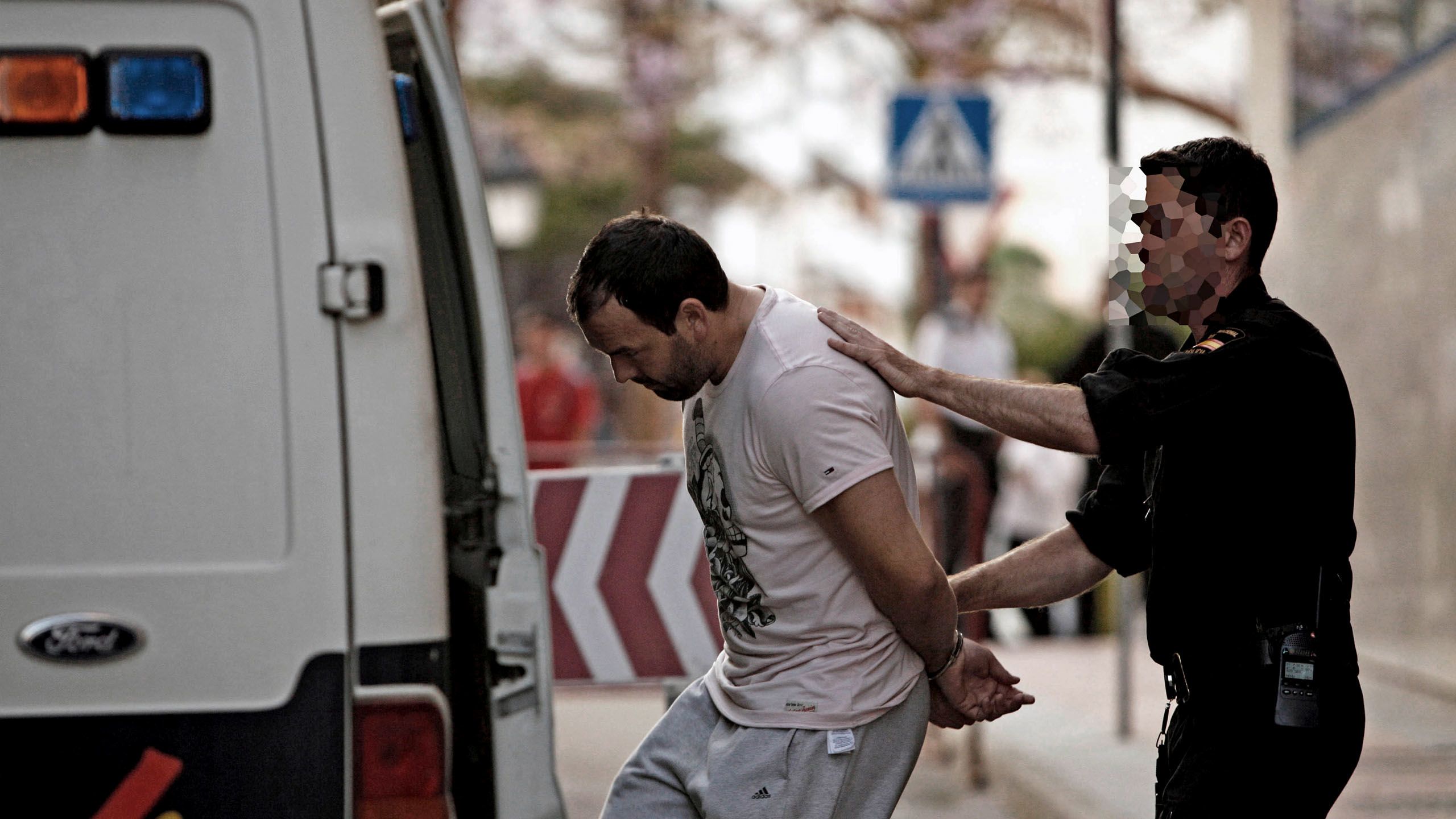
Once upon a time, the extended Hutch family from north inner-city Dublin, and the Kinahans got along just fine. Irish police say Gerry Hutch, the boss of the Hutch clan, and Christopher Snr laundered cash, processed stolen cheques and generally helped each other out.
But there were differences. Gerry Hutch is known as The Monk.
Christopher Snr is known as the Dapper Don.
Gerry Hutch did robberies. He frowned on drugs.
Kinahan Snr couldn’t deal enough of them.
Gary Hutch was Gerry’s nephew. Unfortunately, as things turned out, he chose to follow the crime model of Christopher Kinahan Snr, and not his uncle’s.
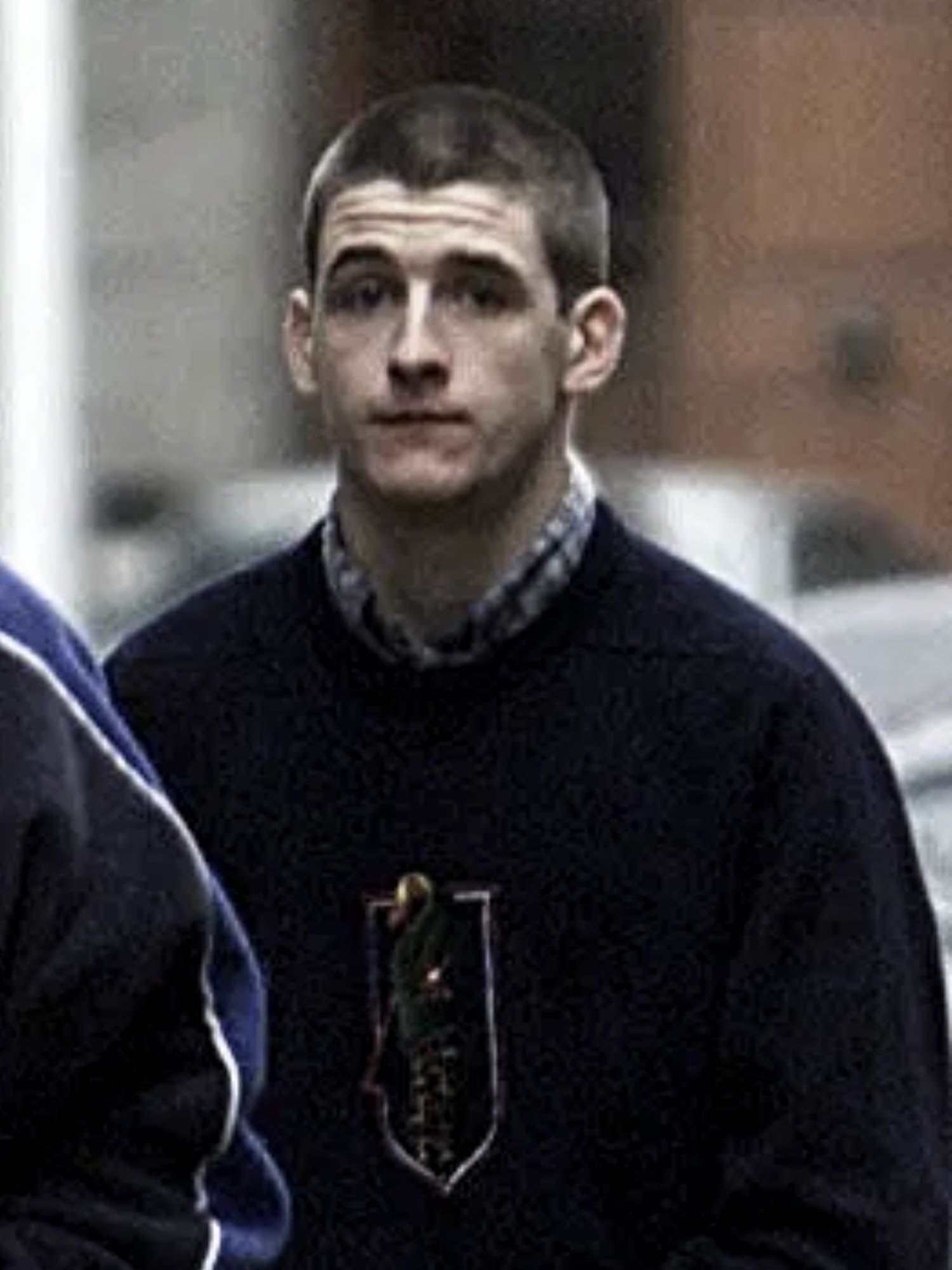
Gary Hutch (The Irish Sun)
He moved to Spain, close to Daniel Kinahan. Investigators there concluded: “He is Daniel’s right-hand man and transmits Daniel’s orders to members of a lower rank.”
Then came the fallout. By 2014 Gary was suspected of being an informant. This may or may not be the catalyst for what happened next. Sure and certain facts are rare in the cartel world except when it comes to who has been shot, or who has been killed.
Two years earlier, Kinahan had helped set up a boxing management company and gym in Marbella. His business partner and the face of the enterprise was Birmingham boxer Matthew Macklin. It was called Macklin’s Gym Marbella, or MGM.
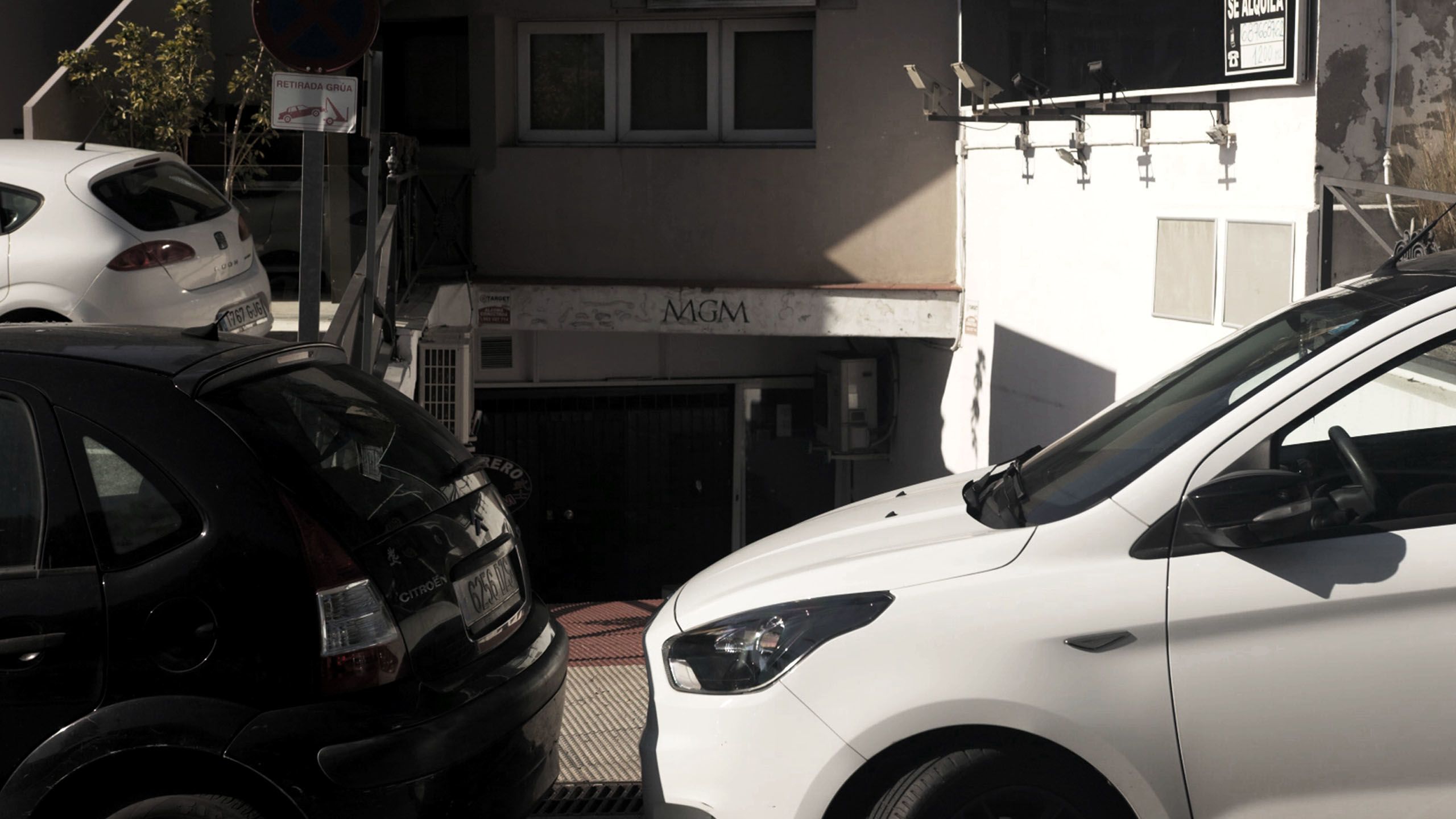
Kinahan’s interest in boxing went back to his Dublin days. He’s more than a fan of the sport and had been running his own gym in the Spanish city before he teamed up with Macklin and opened MGM in 2012.
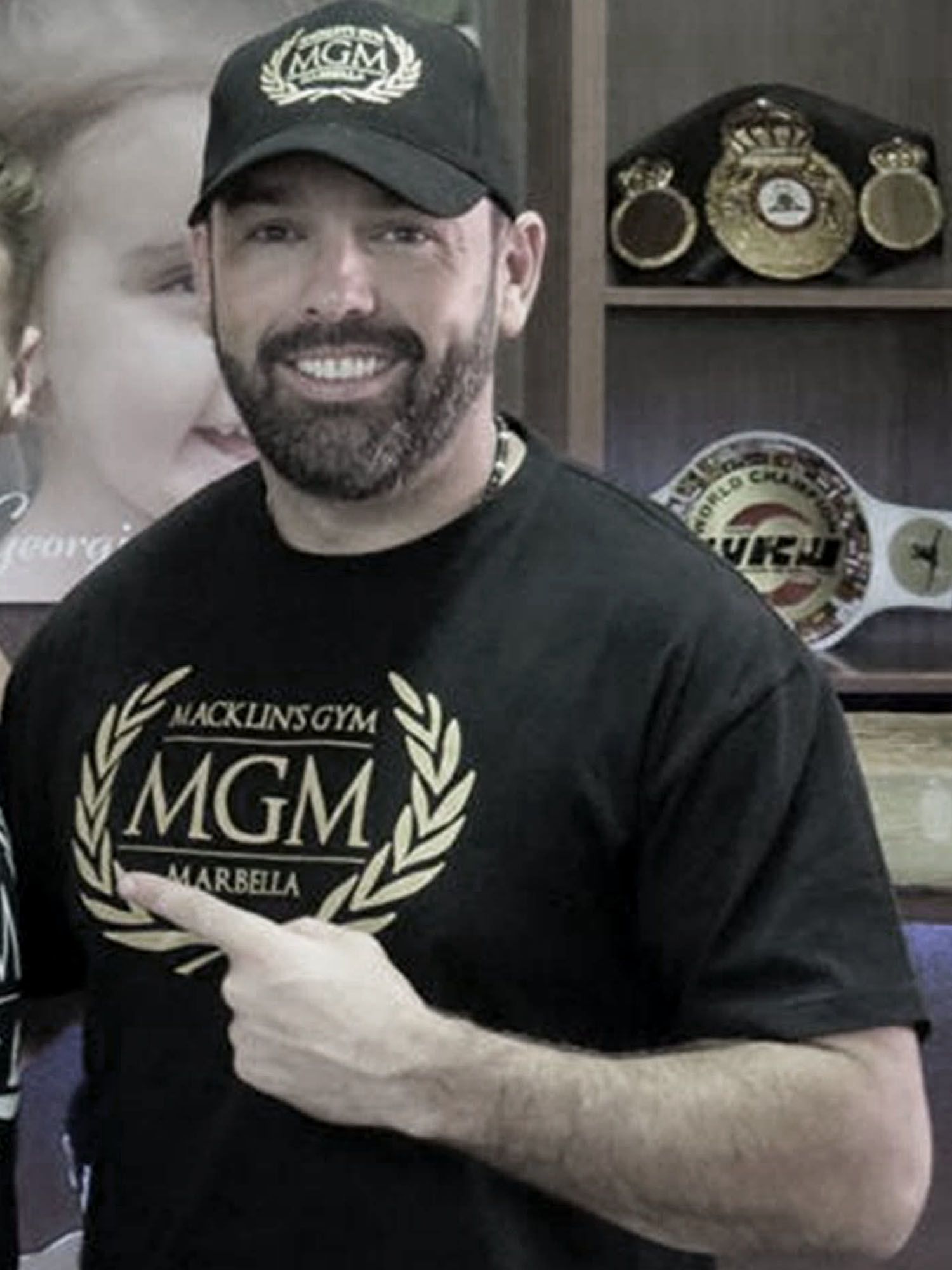
In Britain, most in the sport probably shared the view of boxing writer Tris Dixon: “I don't think anyone predicted how big and powerful it would become, and that it was the seed for what would happen in the years that followed.”
For sure, well-known criminals used the gym. But MGM became known as a serious professional base for boxers. And it was successful.
Talented young British and Irish fighters began training at MGM. Good financial terms were on offer and the best of facilities were on tap. Among the recruits was Tom Stalker, the captain of the successful British 2012 Olympic boxing team.
The most powerful people in British boxing are promoters Eddie Hearn and Frank Warren. By the summer of 2014 both had visited and broken bread with Daniel Kinahan. These relationships would only become more important with time.
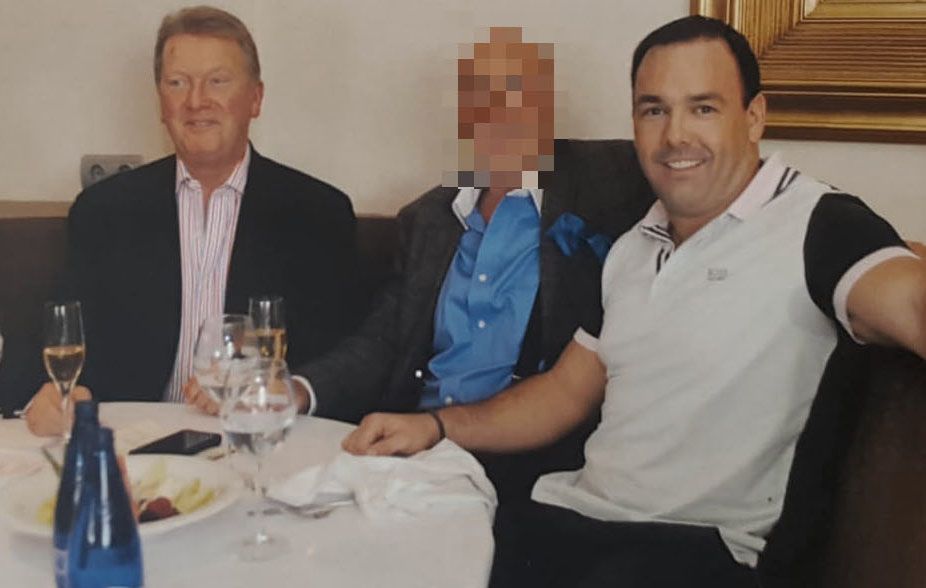
Frank Warren and Daniel Kinahan
MGM was quickly becoming a player in the boxing business. And despite its apparent attraction to well-known criminals, it seemed divorced from the out-workings of criminality.
That was to change.
First came the shooting that August of top boxing trainer Jamie Moore at Daniel Kinahan’s Spanish home. Moore, who’d been working at the Marbella gym, survived. But he wasn’t the intended target. It’s widely reported that the gunman had been hunting Daniel Kinahan himself.
One month later. Another regular at the gym - reputed mobster Gerard Kavanagh - was shot.
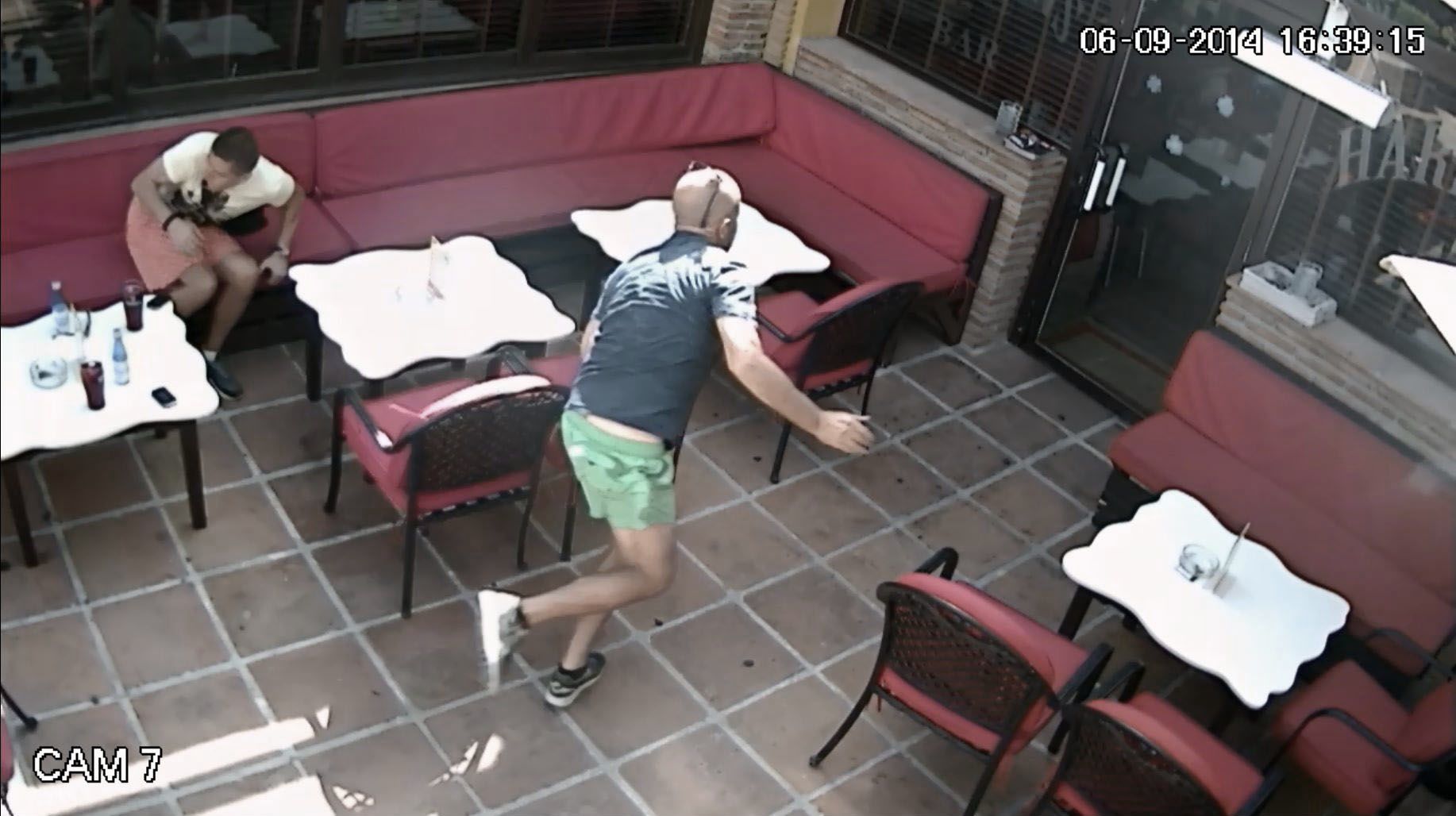
CCTV footage: Gerard Kavanagh, Estepona Spain, 2014 (The Irish Sun)
Murderous violence was suddenly stalking MGM. And somewhere in the furious mix of paranoia, alleged drug dealing, drug taking and guns, someone resolved to kill Gary Hutch. Word was that he had organised the attempted hit on Daniel Kinahan. Reports suggest a deal to save his life had been drawn up between his family and the KOCG. If it had been, it didn’t hold.
He was shot dead in Spain a year later. Gangland killings are not unusual, but those with any understanding of the criminal networks in Dublin knew this was different. There would be consequences.
In Marbella, you might have thought the shadow of the gunmen would have obliterated MGM’s trajectory. Three shootings. Two murders. But you would be wrong.
By the year’s end MGM and Daniel Kinahan could boast of two world champions, Liam Smith and Billy Joe Saunders. That success would breed further success.
Kinahan had had big plans from the start.
Jason Coghlan ran a legal centre in Marbella at the time. No stranger to crime himself, he had served time in jail for robbery.
“Danny Kinahan is a personal friend of mine,” says Coghlan.
“When he first started this gymnasium, he had a lot of dreams in his head that we couldn't even keep up with. He said: ‘I will make this the biggest boxing promotion gym in the world.’”
But first came the Clash of the Clans.
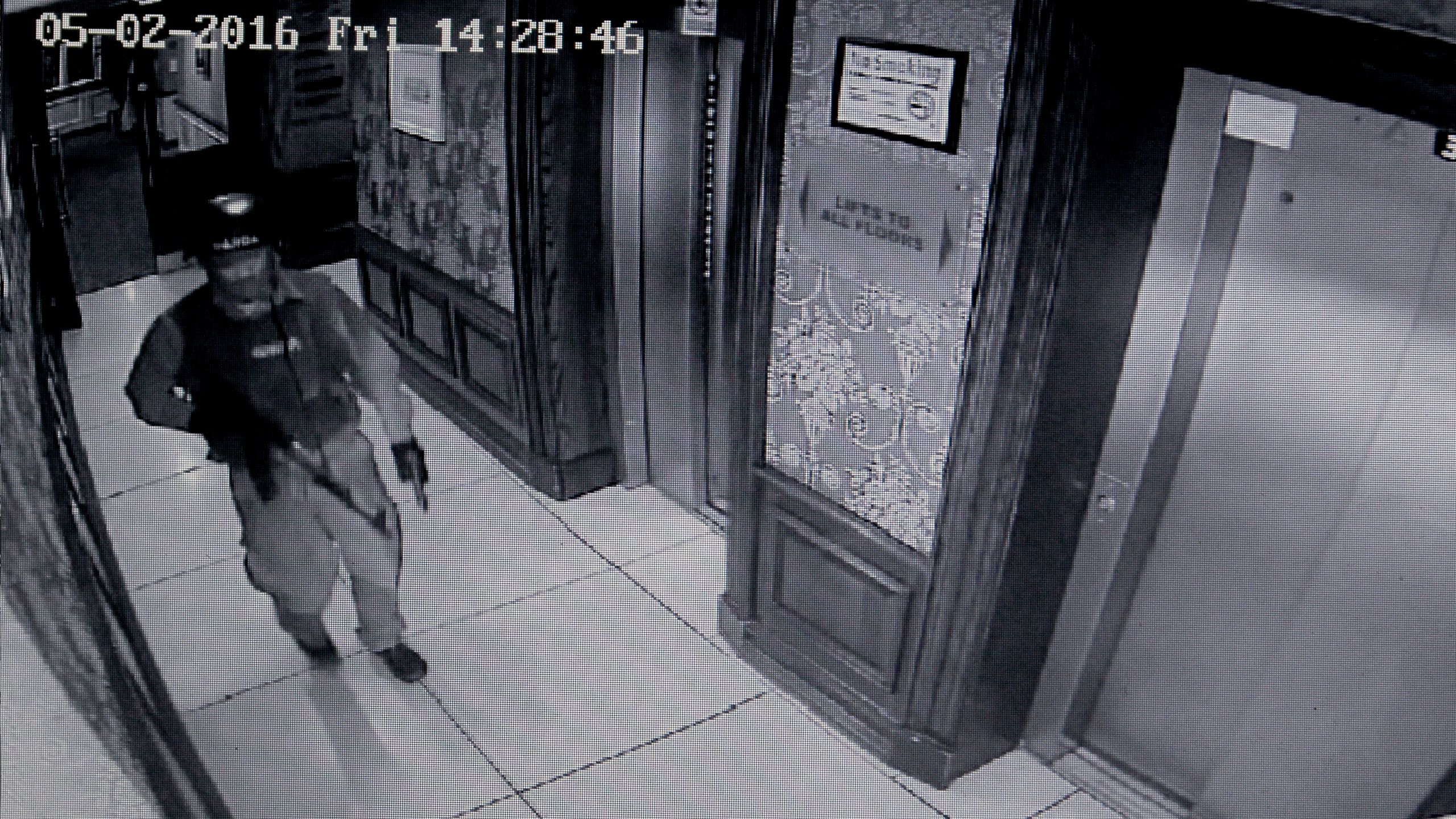
The organisation
Days after the Regency weigh-in shooting, the killings started in earnest. Taxi driver Eddie Hutch was shot dead - an execution thought to have been carried out by the Kinahan cartel.
Irish police sources have said he was an innocent man. But he was a brother of Gerry Hutch, the man alleged to have organised the hotel hit.
The Kinahan cartel was blamed for most of the killings that followed. For two years, a small section of Dublin city appeared under siege. A total of 18 people would die, most of whom were relatives or associates of the Hutch’s.
The Kinahan cartel came under ferocious scrutiny from the Irish authorities. Dozens of gang members were jailed. None of the alleged leaders of the cartel faced charges but in the view of the police, their role was made clear.
In 2018, the Irish High Court accepted police evidence that the KOCG was an international crime group and that its drug operations were controlled by Daniel Kinahan.
Later, the Irish Special Criminal Court accepted that the KOCG was involved in drugs and weapons trafficking, money laundering and “execution style” murders to protect its interests.
Meanwhile in Spain, the police concluded that Daniel Kinahan was involved in the murder of Gary Hutch, though they admitted they didn’t have the evidence to prove it.
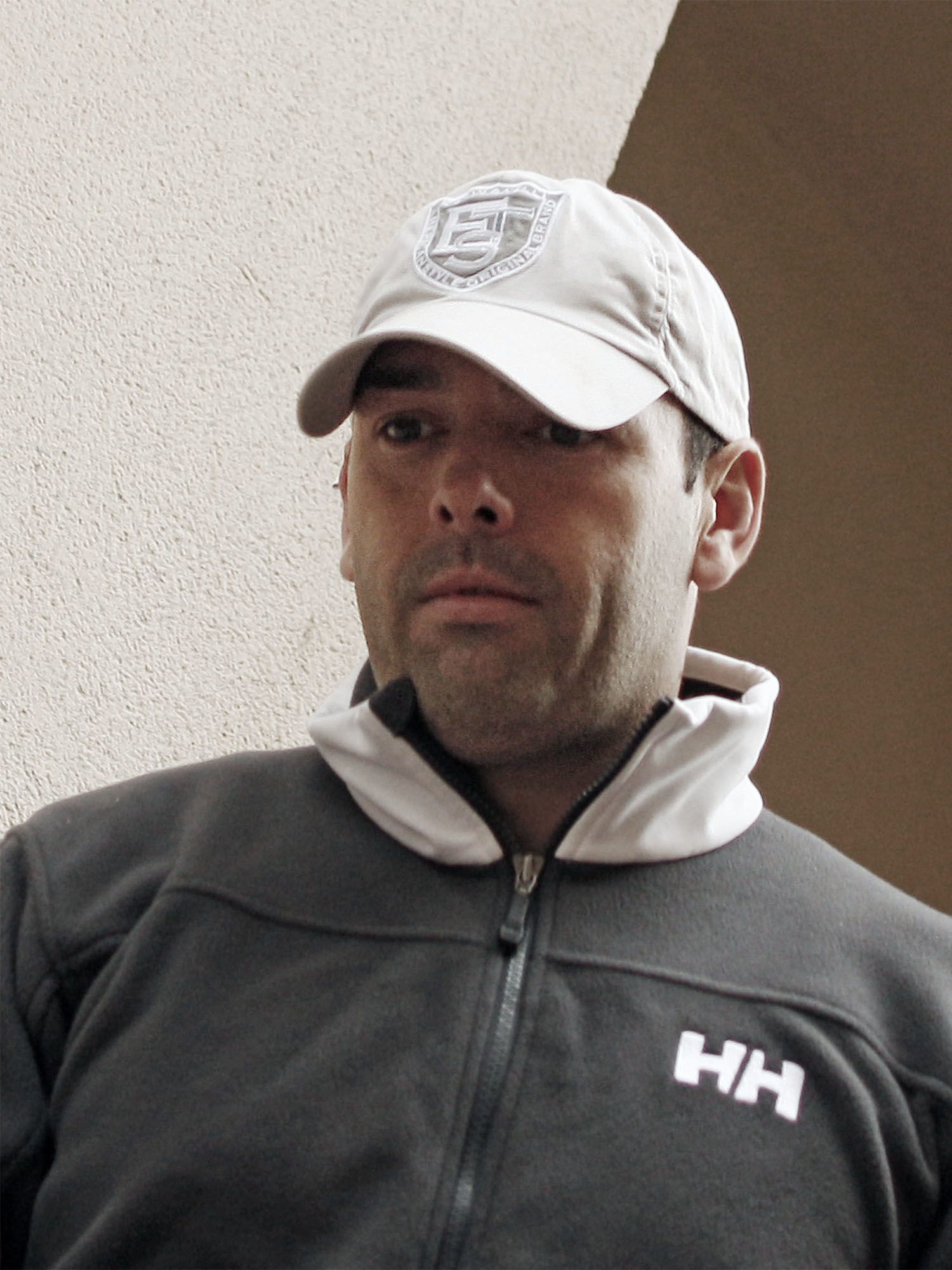
We have been told by police sources in the UK that the Kinahans are under investigation for suspected drug trafficking in Britain.
We asked the US Drug Enforcement Agency about the activities of the Kinahan cartel. They told us: “We will not be able to comment on this because it is part of an ongoing investigation.”
And while all that was happening with law enforcement, a revolution of sorts was reaching maturity in the boxing world - at MGM in particular.
First in January 2017 came the news that Daniel Kinahan was officially standing down from the company. Mathew Macklin said the move followed the “bad publicity”. The company changed name, too, rebranded as MTK Global.
Later that year the company got a new boss - Sandra Vaughan, a Scottish fake tan entrepreneur and long-time friend of Daniel Kinahan’s. After buying the business from Matthew Macklin, she was at pains to point out that Kinahan and MTK had “cut ties”.
Except it’s not as simple as that. Step into the picture Tyson Fury.
Fury had been in a bad place. After winning the world heavyweight title in 2015, he spent most of the following year in a tumult of drugs, drink and depression. He had to relinquish his titles, and his weight ballooned.
But in 2017, he began a remarkable comeback - in Marbella, at MTK. He slowly regained his fitness and his health. Daniel Kinahan was close by.
Matt Christie, who edits British publication Boxing News, has kept a keen eye on Fury’s journey.
“I think what is generally known, or generally accepted, is that Daniel Kinahan played a massive part in getting Tyson Fury out of the darkness, and offering him a route back to the sport of boxing.”
We haven’t been told on what precise date Daniel Kinahan became Tyson Fury’s official “adviser”, but in November 2017, on Kinahan’s advice, Fury signed up with MTK.
The Dubliner may not have had any formal connection with MTK but he was advising Tyson Fury and many other MTK boxers. He was even advising Vaughan, as she later confirmed.
Daniel Kinahan and the company he founded were joined at the hip, if not on the dotted line.
When he moved to Dubai, MTK Global followed – setting up its headquarters there in 2018. Its stock was rising in world boxing. More and more fighters were joining up. Talent like Belfast’s Carl Frampton.
In hushed and sometimes almost furtive conversations, managers and trainers across Britain and Ireland have complained bitterly to us about MTK’s increasing power in the game. Some had lost fighters to MTK. But only one was prepared to speak publicly.
Barry McGuigan once strode across the boxing world as one of the most popular and talented fighters on the planet. When he retired, he became a boxing manager.
He has now lost five boxers to MTK’s pulling power.
“Me and my boys had invested 18 years of our lives in those five fighters that left,” he tells me.
I put to him that his complaints could be dismissed as sour grapes.
“That's a fair comment. But put yourself in my position. You invest financially in these kids. You take them on and then out of the blue they're unhappy and they're gone.”
The fact is that MTK and Kinahan were hurtling to the very top of boxing. Helped in large part by the remarkable rejuvenation of Tyson Fury, who was winning over America with astonishing performances.
And in March 2019, a crucial link up was made with Bob Arum, just about the most influential player in US boxing. The big television money followed. A five-fight deal worth $100m capped them all.
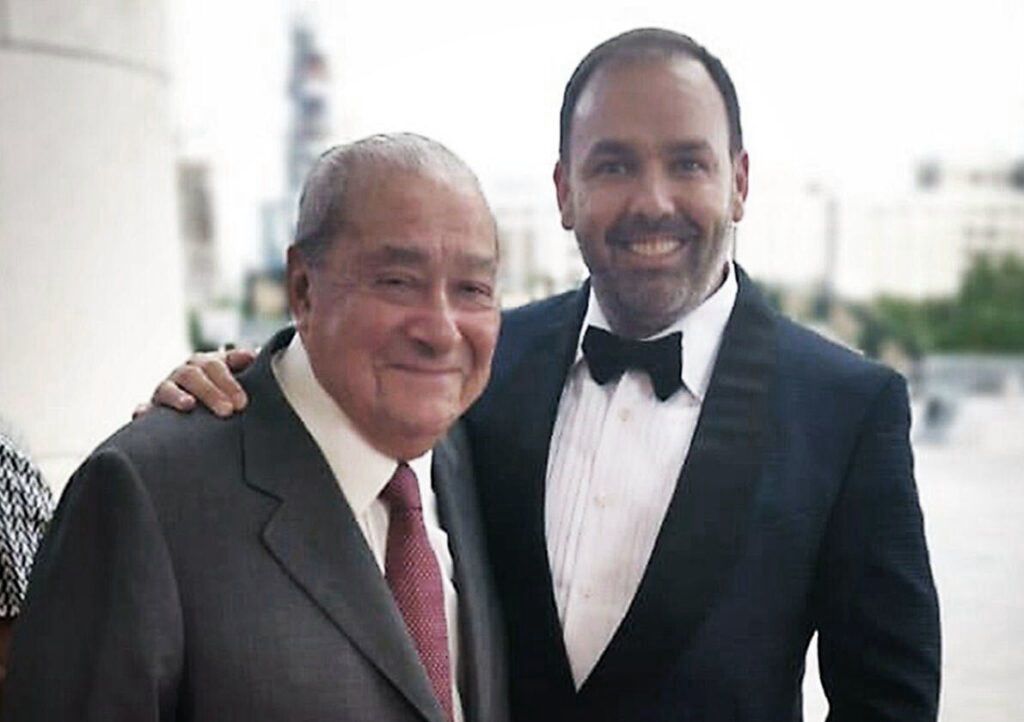
Bob Arum and Daniel Kinahan
Officially, Kinahan had nothing to do with these deals. Remember MTK had cut its ties with him. There was no word about him even when Fury secured the world title again this time last year.
But MTK was no longer a start-up. With more than 200 boxers on its books it was the biggest boxing management in Europe, maybe the world
It looked set to be centrally involved in what many people are calling the biggest fight in British boxing history - Fury against Joshua.
This was the moment, in the late spring and early summer of 2020 when it appears Daniel Kinahan decided to claim his place in the boxing limelight.
Tyson Fury then did his act of acclimation, praising him for setting up the big fight.
In the media swirl came interviews with promoters Eddie Hearn and Bob Arum. Arum gushed about Daniel Kinahan, calling him his “captain”.
“I am not naive about Daniel and his past. As long as I understand that dealing in this area, sport, they are honourable, they are smart and are not doing anything that is anyway devious or wrong, why wouldn't I deal with him? “
Hearn said: “He is the guy leading this Tyson Fury ship. Everyone knows, particularly in boxing, that he represents a number of high profile boxers, [and] has represented Tyson Fury for a number of years.”
Hearn has worked with Kinahan for years. His company told Panorama he has no influence over the people boxers choose to have within their management team.
MTK boss Sandra Vaughan, who had told the world that MTK had no ties with Kinahan, clarified the relationship with the alleged gangster.
“I will always go to Daniel for advice,” she trumpeted. “Does he personally advise other high-profile people? Bob Arum? He speaks to Frank [Warren]. He speaks to Eddie.
“If anybody in the boxing world is doing any type of business in boxing and doesn’t speak to Daniel, or speak to someone that speaks to Daniel, they are telling lies”.
Pat Leahy, now retired but who had previously had to police the fallout of the Regency shooting, puts it this way: “I think he was trying to launder his name. He was laundering his reputation.”
If Kinahan had hoped his re-entry from the shade of boxing’s backrooms would herald a permanent place in the limelight, he had called it wrong.
Questions were asked about him at Westminster and in the Irish parliament. It was announced he would no longer negotiate fights for Tyson Fury. Then MTK said he was stepping away from boxing.
As Kinahan slipped back into the shadows, MTK maintained its growth. In recent months, it has started to sign up a host of American talent.
American sports lawyer and former boxing manager Kurt Emhoff had also noted MTK’s growth: “They have a tonne of fighters, and now they're signing even more fighters but, where's the money coming from to finance this?”
Barry McGuigan has the same question: “It takes millions and millions of dollars to do what MTK have done. Where is the money coming from to allow MTK to grow at such a ferocious rate?”
Like other private companies, little information is available about its finances, but in the US courts, a boxing manager has accused MTK of using Daniel Kinahan’s drug money to buy up talent.
The court filing in California alleges it is simply a front for the Kinahan drug cartel: “MTK receives funds directly or indirectly from Mr Kinahan, which are derived from racketeering activities such as drug trafficking and money laundering.”
MTK says the lawsuit will be most vigorously challenged.
The allegation of money laundering was in my mind eight weeks ago when I drove from New York to semi-rural Connecticut see a man called Bob Yalen.
The American was appointed as the new chief executive of MTK over the summer. It was he who announced that Kinahan had left boxing.
I knocked on his front door. No recording devices. No camera. I hoped this approach might encourage him to talk because he hadn’t responded to a letter we sent him in Dubai months earlier.
There followed an extraordinary conversation. I had expected him to tell me to leave. But no, Yalen, dressed in casual house garb, talked with me on his doorstep for about 15 minutes.
The biggest reveal – that Daniel Kinahan was still in boxing, and still very much associated with MTK despite all public claims to the contrary.
Yalen said he was in regular contact with Daniel Kinahan, as business required it. He revealed that Kinahan was still advising MTK boxers but couldn’t say if that included Tyson Fury.
We asked Tyson Fury whether he’s still being advised by Daniel Kinahan - but he didn’t respond.
When I pressed Yalen about where the money was coming from to fund the expansion of the company, he said that "a big pot" had been developed over the years. I asked him if that pot came from Daniel Kinahan's drug cartel dealings. He said, “No”.
He said that Kinahan had been the “driving force” in MTK when Yalen first joined the company in 2018 but now Kinahan had “no involvement in the business officially”.
Daniel Kinahan’s lawyers told the BBC he has “no criminal record or convictions”. They say the “wild allegations” about him being a crime boss “are false and have no evidential basis whatsoever”.
He’s an independent adviser in boxing and has “exited the business of MTK”.
MTK’s solicitors told us it has a “perfectly sustainable business” and has grown by “offering excellent managerial services….at a very competitive price.”
They said “Mr Kinahan has never owned or controlled our client company”. He’s never provided funding “nor has been a director, shareholder, officer, employee or consultant”.
They said, “It’s true Mr Kinahan does provide personal advice to a number of boxers managed by MTK Global”, as well as fighters at other companies.
I wanted to know why Yalen had chosen to join MTK at all, when allegations about Kinahan were well known.
“I asked the fighters and they spoke well of him,” he told me. “I’ve never seen anything to concern me.”
It had been an astonishing meeting. In our terms, journalistically decisive.
We now knew that Daniel Kinahan, the alleged head of a cartel which is suspected of involvement in murder, drugs and weapons trafficking and money laundering, is still at the heart of the boxing business.
Maybe not at the top table, but you’d bet he’s in the room next door.
Credits
Author: Darragh MacIntyre
Online editor: Kathryn Westcott
Illustration: Emma Lynch
Images: Ernie Leslie (The Sunday World), Getty Images, SOLARPIX, The Irish Sun, Collins Photo Agency
Online Producer: James Percy
More Long Reads
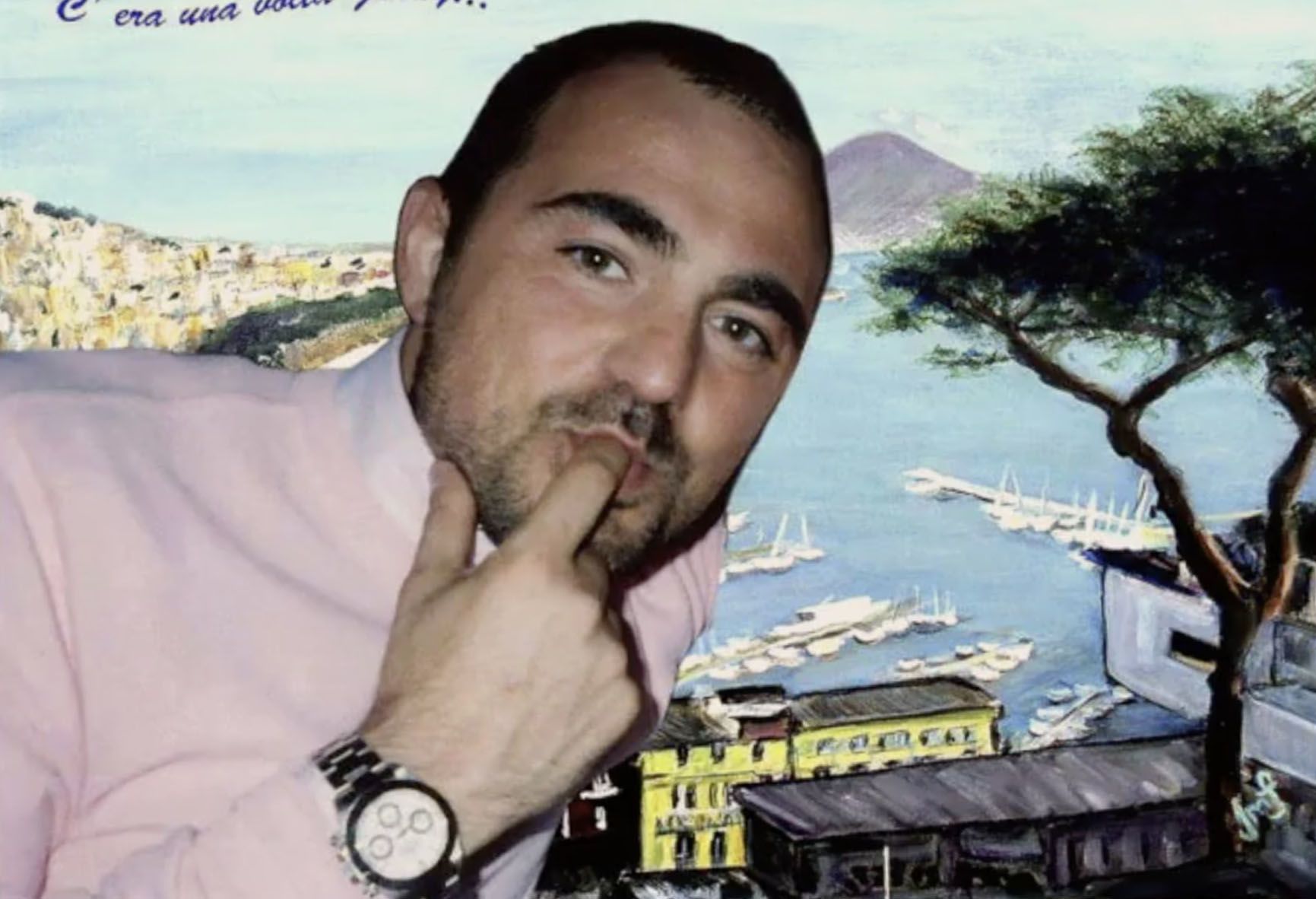
The Lancashire hideaway of an Italian mafia boss
